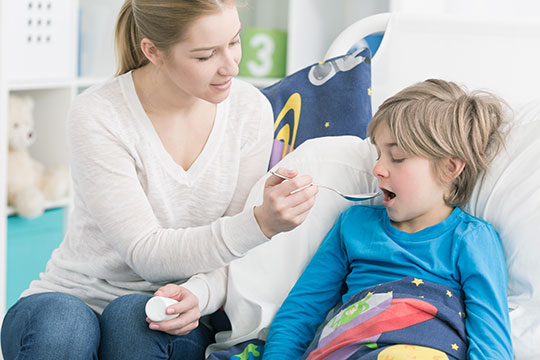
A new research study has found that four in five parents are administering the wrong dose of liquid medications — in some cases more than twice as much as instructed.
Through a series of experiments to test whether 2,100 parents could follow common dosing instructions, over 80 per cent of participants made at least one mistake while measuring, and 68 per cent of the time that mistake was an overdose.
“Many parents rely on the small plastic cup that often comes included with liquid medication or use a spoon from home to administer liquid medication,” explains Pharmacy Manager Jason Chan-Remillard. “Unfortunately, these methods make it easy to inaccurately measure a child’s dosage.”
In fact, the study indicated parents are four times more likely to give their children either too much or too little medication when using a plastic cup. The researchers suggest using a syringe instead of a cup or spoon could prevent many dosing errors.
“If parents are using a plastic cup, it should be placed on a level surface and the measurement should be confirmed at eye level,” says Chan-Remillard.
Dosage confusion also stems from the fact that instructions for liquid medications are often found in an assortment of measurements, from millilitres to tablespoons, and are often based on the weight – in pounds or kilograms – of the child. This leaves room for calculation errors which could result in an overdose, or the child not receiving enough medication. If the child receives too little, their illness could go untreated.
Chan-Remillard encourages parents to ask for dosage guidance from pharmacists even for common over-the-counter medications.
“Giving children the right dosage is just as important as giving them the right medication. Don’t be afraid to seek advice from pharmacists. There are no silly questions. We are here to provide parents with general education about dosage or even specific recommendations tailored to the individual child. We can also provide appropriate dosing tools such as syringes and instructions about how to use them accurately.”
Reference: Liquid Medication Errors and Dosing Tools: A Randomized Controlled Experiment http://pediatrics.aappublications.org/content/early/2016/09/08/peds.2016-0357

